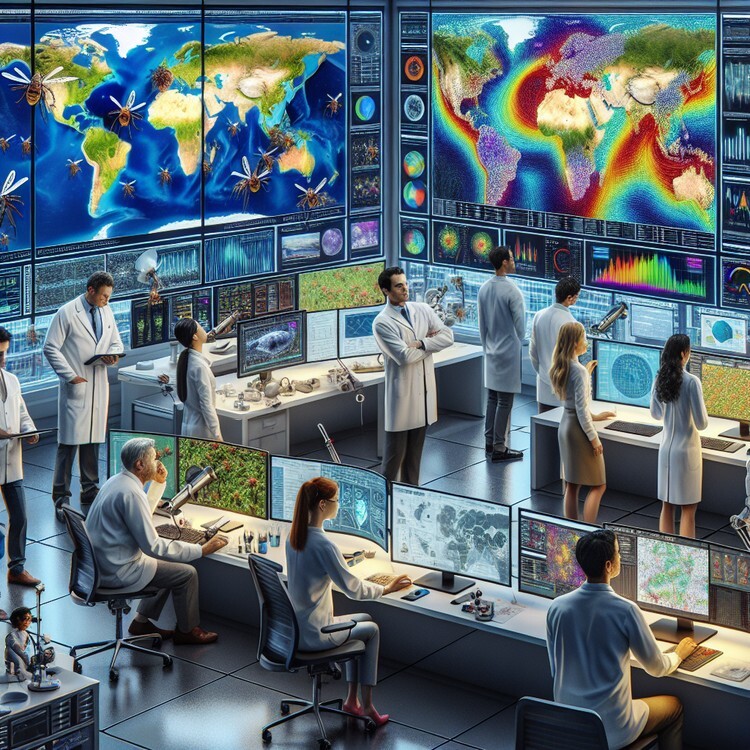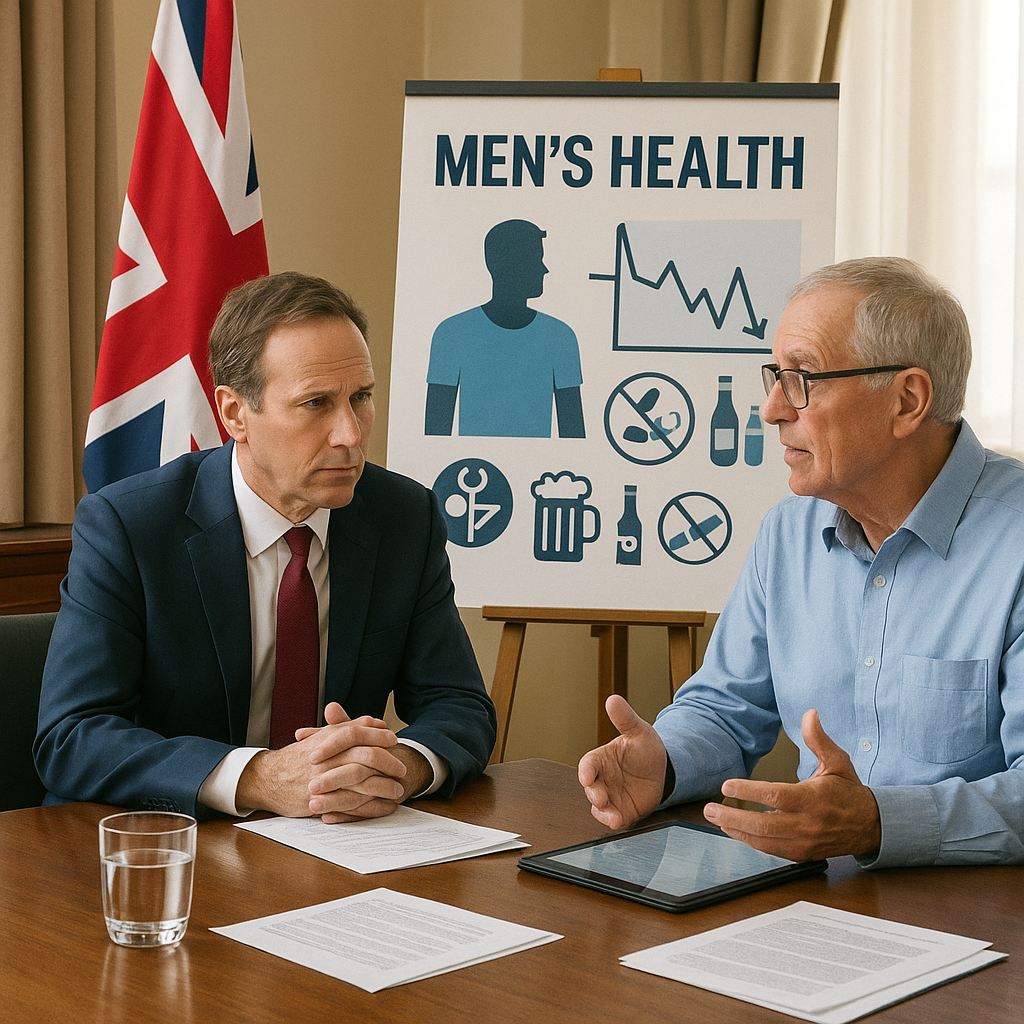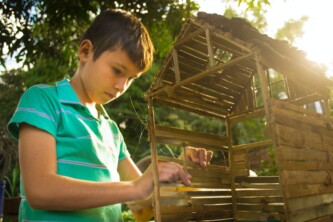Scientists are working hard to fight diseases caused by climate change, like dengue fever. They’re studying insects, like mosquitoes, that carry these diseases. These insects are able to adapt to new climates and environments, and they thrive in warmer and wetter conditions caused by global warming. As leaders meet for climate talks, experts are highlighting the big impact that global warming has on our health. Scientists are using insect surveillance and climate forecasts to create tools that can predict disease outbreaks. By looking at things like weather patterns and where insects breed, they can warn communities in advance and help them prepare.
One project, funded by the Wellcome Trust, is already using satellite images, drones, and weather sensors to predict disease outbreaks in 12 countries. They combine this information with research on mosquito populations to understand how climate change affects diseases carried by insects. The goal is to save lives by identifying areas at high risk and running public health campaigns to protect people from disease-carrying mosquitoes.
Mosquitoes are very adaptable insects. They can survive in different climates and change their behavior accordingly. If greenhouse gas emissions keep going up, our climate will become even better for mosquitoes, which means more diseases will be spread. The number of dengue cases reported to the World Health Organization has already gone up a lot in the last 20 years. Countries like Bangladesh have had big outbreaks because of hotter and wetter conditions.
Scientists are working on early warning systems, like the E-Dengue system, which can predict outbreaks two months in advance. These systems help communities take action to prevent the spread of diseases. They use data from weather stations, drones, and local communities, which is then analyzed by powerful computers to make predictions. The Harmonize project is testing this approach in different countries and hopes to use it all over the world.
While scientists are taking steps to prevent diseases, it’s really important to also reduce greenhouse gas emissions. This is the best way to tackle climate change and its impact on our health. Health needs to be a big part of climate change discussions, and we need to prioritize both health and fairness when taking action. As climate-fueled diseases get worse, we need to pay more attention, provide more funding, and focus on finding solutions.
Original news source: How scientists are fighting climate-fuelled disease (BBC)
Listen:
Slow
Normal
Fast
Vocabulary:
| 1 | dengue fever | A type of illness caused by a virus transmitted by mosquitoes |
| 2 | insects | Small creatures like mosquitoes or flies |
| 3 | adapt | Change and adjust to new conditions or situations |
| 4 | global warming | The increase in the Earth’s temperature due to human activities |
| 5 | disease outbreaks | The sudden increase in the number of cases of a particular disease in a specific area |
| 6 | satellite images | Pictures taken from space that show the Earth’s surface |
| 7 | climate change | The long-term change in weather patterns and temperatures |
| 8 | greenhouse gas emissions | The release of gases that contribute to the greenhouse effect and global warming |
| 9 | early warning systems | Systems that provide advance notice or information about potential dangers or problems |
| 10 | prevent | Take action to stop something from happening |
| 11 | prioritize | Give more importance or attention to something |
| 12 | funding | Money provided for a particular purpose or project |
| 13 | focus | Concentrate or direct attention or effort on something |
| 14 | tackle | Deal with or address a problem or issue |
| 15 | solutions | Answers or ways to solve a problem or issue |
Group or Classroom Activities
Warm-up Activities:
– News Summary
Instructions: In pairs or small groups, students will read the article and then summarize the main points in a news article format. They should include the key information and any important details. They can present their summaries to the class.
– Opinion Poll
Instructions: In pairs or small groups, students will discuss their opinions on the topic of climate change and its impact on health. They can create a list of questions to ask each other and record their responses. They can then share their findings with the class and compare different opinions.
– Vocabulary Pictionary
Instructions: Write a list of key vocabulary words from the article on the board. Divide the class into teams and give each team a whiteboard or piece of paper. One student from each team will come to the front of the class and choose a word from the list. They will then have one minute to draw a picture representing the word while their team tries to guess what it is. The team with the most correct guesses wins.
– Pros and Cons
Instructions: In pairs or small groups, students will discuss the pros and cons of using technology and data to predict and prevent disease outbreaks caused by climate change. They should consider both the benefits and potential drawbacks of these approaches. After their discussion, they can present their findings to the class and have a class discussion.
– Future Predictions
Instructions: In pairs or small groups, students will imagine they are scientists working on solutions to combat climate-fueled diseases. They will discuss and brainstorm ideas for future technologies or strategies that could be used to predict and prevent disease outbreaks. They can create a presentation or poster to showcase their ideas to the class.
Comprehension Questions:
1. Why are scientists studying insects like mosquitoes?
2. How do insects like mosquitoes adapt to new climates and environments?
3. What impact does global warming have on our health?
4. How are scientists using insect surveillance and climate forecasts to predict disease outbreaks?
5. What tools are being used to predict disease outbreaks in 12 countries?
6. How does climate change affect diseases carried by insects?
7. What steps are scientists taking to prevent the spread of diseases?
8. Why is it important to reduce greenhouse gas emissions in order to tackle climate change and its impact on our health?
Go to answers ⇩
Listen and Fill in the Gaps:
Scientists are working hard to fight diseases caused by climate (1)______, like dengue fever. They’re (2)______ insects, like mosquitoes, that carry these diseases. These insects are able to adapt to new climates and environments, and they thrive in warmer and wetter conditions caused by global warming. As leaders meet for climate talks, experts are highlighting the big impact that global warming has on our health. Scientists are using insect surveillance and climate forecasts to create tools that can predict disease (3)______. By looking at things like weather (4)______ and where insects breed, they can warn communities in advance and help them prepare.
One project, funded by the Wellcome Trust, is already using satellite images, (5)______, and weather sensors to predict disease outbreaks in 12 countries. They (6)______ this information with research on mosquito populations to understand how climate change affects diseases carried by insects. The goal is to save lives by identifying areas at high risk and running public health campaigns to protect (7)______ from disease-carrying mosquitoes.
Mosquitoes are very adaptable insects. They can (8)______ in different climates and change their behavior accordingly. If greenhouse gas emissions keep going up, our (9)______ will become even better for mosquitoes, which means more diseases will be spread. The number of dengue (10)______ reported to the World Health Organization has already gone up a lot in the last 20 years. Countries like Bangladesh have had big outbreaks because of hotter and wetter conditions.
Scientists are (11)______ on (12)______ warning systems, like the E-Dengue system, which can predict outbreaks two months in advance. These systems help communities take action to prevent the spread of diseases. They use data from weather stations, drones, and local communities, which is then analyzed by powerful computers to make predictions. The Harmonize project is testing this approach in different countries and hopes to use it all over the world.
While scientists are taking steps to prevent diseases, it’s really important to also reduce greenhouse gas emissions. This is the best way to (13)______ climate change and its impact on our health. Health needs to be a big part of climate change (14)______, and we need to prioritize both health and (15)______ when taking action. As climate-fueled diseases get worse, we need to pay more attention, provide more (16)______, and focus on finding solutions.
Go to answers ⇩
Discussion Questions:
Students can ask a partner these questions, or discuss them as a group.
1. What is dengue fever and how is it spread?
2. How would you feel if you lived in an area with a high risk of disease outbreaks caused by climate change?
3. Do you think it’s important for scientists to study insects like mosquitoes? Why or why not?
4. Have you ever heard of an early warning system? How do you think it could be helpful in preventing disease outbreaks?
5. What do you think are some ways we can reduce greenhouse gas emissions?
6. How do you think climate change affects our health?
7. Do you think it’s fair that some countries are more affected by climate-fueled diseases than others? Why or why not?
8. What are some ways we can prioritize both health and fairness when taking action against climate change?
9. Have you ever experienced a disease outbreak in your community? How did it affect you and those around you?
10. How do you think technology, like satellite images and drones, can be used to fight climate-fueled diseases?
11. Do you like insects? Why or why not?
12. Have you ever seen a mosquito? What do you know about them?
13. What do you think would happen if we didn’t take action to prevent climate change and its impact on our health?
14. How do you think climate change discussions can include a focus on health?
15. Do you think it’s important for communities to be involved in disease prevention efforts? Why or why not?
Individual Activities
Vocabulary Meanings:
Match each word to its meaning.
Words:
1. dengue fever
2. insects
3. adapt
4. global warming
5. disease outbreaks
6. satellite images
7. climate change
8. greenhouse gas emissions
9. early warning systems
10. prevent
11. prioritize
12. funding
13. focus
14. tackle
15. solutions
Meanings:
(A) The release of gases that contribute to the greenhouse effect and global warming
(B) Systems that provide advance notice or information about potential dangers or problems
(C) Concentrate or direct attention or effort on something
(D) Change and adjust to new conditions or situations
(E) The sudden increase in the number of cases of a particular disease in a specific area
(F) Answers or ways to solve a problem or issue
(G) The long-term change in weather patterns and temperatures
(H) The increase in the Earth’s temperature due to human activities
(I) A type of illness caused by a virus transmitted by mosquitoes
(J) Small creatures like mosquitoes or flies
(K) Money provided for a particular purpose or project
(L) Deal with or address a problem or issue
(M) Pictures taken from space that show the Earth’s surface
(N) Give more importance or attention to something
(O) Take action to stop something from happening
Go to answers ⇩
Multiple Choice Questions:
1. What are scientists studying to fight diseases caused by climate change?
(a) Birds
(b) Insects
(c) Fish
(d) Reptiles
2. Why do insects like mosquitoes thrive in warmer and wetter conditions?
(a) Because of deforestation
(b) Because of global warming
(c) Because of pollution
(d) Because of overpopulation
3. How are scientists using insect surveillance and climate forecasts to predict disease outbreaks?
(a) By studying human behavior
(b) By analyzing satellite images of insects
(c) By looking at weather patterns and where insects breed
(d) By using drones to track insect populations
4. What is the goal of the project funded by the Wellcome Trust?
(a) To study the behavior of mosquitoes in different climates
(b) To reduce greenhouse gas emissions
(c) To develop a vaccine for dengue fever
(d) To predict disease outbreaks and protect people from disease-carrying mosquitoes
5. Why are mosquitoes able to survive in different climates?
(a) Because they migrate to different regions
(b) Because they hibernate during extreme weather conditions
(c) Because they are adaptable insects
(d) Because they have a natural resistance to climate change
6. How can early warning systems like the E-Dengue system help prevent the spread of diseases?
(a) By eliminating mosquitoes from affected areas
(b) By providing vaccines to at-risk populations
(c) By implementing strict quarantine measures
(d) By predicting outbreaks two months in advance
7. Why is it important to reduce greenhouse gas emissions?
(a) To tackle climate change and its impact on health
(b) To protect endangered species
(c) To promote economic growth
(d) To improve transportation systems
8. What should be prioritized when taking action against climate change and its impact on health?
(a) Health and fairness
(b) Economic growth and development
(c) Environmental conservation
(d) Technological advancements
Go to answers ⇩
True or False Questions:
1. These insects are able to adapt to new climates and thrive in warmer and wetter conditions.
2. Mosquitoes can survive in different climates and change their behavior accordingly.
3. Scientists are not using insect surveillance and climate forecasts to predict disease outbreaks.
4. Scientists are working on early warning systems, like the E-Dengue system, to predict disease outbreaks in advance.
5. The number of dengue cases has increased in the last 20 years due to hotter and wetter conditions caused by climate change.
6. Scientists are not studying insects, like mosquitoes, that carry diseases caused by climate change.
7. One project funded by the Wellcome Trust is not using satellite images, drones, and weather sensors to predict disease outbreaks in 12 countries.
8. Global warming does not have a big impact on our health, and experts are not highlighting this at climate talks.
Go to answers ⇩
Write a Summary:
Write a summary of this news article in two sentences.
Check your writing now with the best free AI for English writing!
Writing Questions:
Answer the following questions. Write as much as you can for each answer.
Check your answers with our free English writing assistant!
1. What are scientists studying in order to fight diseases caused by climate change?
2. How do insects, like mosquitoes, adapt to new climates and environments?
3. How are scientists using satellite images, drones, and weather sensors to predict disease outbreaks?
4. Why are mosquitoes able to thrive in warmer and wetter conditions caused by global warming?
5. What is the goal of the E-Dengue system and how does it work?
Answers
Comprehension Question Answers:
1. Why are scientists studying insects like mosquitoes?
Scientists are studying insects like mosquitoes because they carry diseases that are caused by climate change, such as dengue fever. By studying these insects, scientists can understand how they adapt to new climates and environments, and find ways to prevent the spread of these diseases.
2. How do insects like mosquitoes adapt to new climates and environments?
Insects like mosquitoes are very adaptable. They can survive in different climates and change their behavior accordingly. For example, if the climate becomes warmer and wetter due to global warming, mosquitoes will thrive in these conditions and spread more diseases.
3. What impact does global warming have on our health?
Global warming has a big impact on our health because it creates warmer and wetter conditions that are ideal for disease-carrying insects like mosquitoes. As the climate changes, diseases like dengue fever are spreading to new areas and causing more outbreaks. This poses a threat to our health and well-being.
4. How are scientists using insect surveillance and climate forecasts to predict disease outbreaks?
Scientists are using insect surveillance and climate forecasts to predict disease outbreaks by studying things like weather patterns and where insects breed. They collect data from weather stations, drones, and local communities, and analyze it using powerful computers. This helps them identify areas at high risk of disease outbreaks and warn communities in advance.
5. What tools are being used to predict disease outbreaks in 12 countries?
Satellite images, drones, and weather sensors are being used to predict disease outbreaks in 12 countries. These tools, along with research on mosquito populations, help scientists understand how climate change affects diseases carried by insects. By combining this information, they can create early warning systems and run public health campaigns to protect people from disease-carrying mosquitoes.
6. How does climate change affect diseases carried by insects?
Climate change affects diseases carried by insects because it creates more favorable conditions for these insects to thrive. As the climate becomes warmer and wetter, mosquitoes and other disease-carrying insects can breed and spread diseases more easily. This leads to an increase in disease outbreaks and poses a greater risk to our health.
7. What steps are scientists taking to prevent the spread of diseases?
Scientists are taking steps to prevent the spread of diseases by developing early warning systems, like the E-Dengue system, which can predict outbreaks two months in advance. They also conduct research on mosquito populations and use data from weather stations, drones, and local communities to make predictions. By identifying high-risk areas, scientists can run public health campaigns and help communities take action to prevent the spread of diseases.
8. Why is it important to reduce greenhouse gas emissions in order to tackle climate change and its impact on our health?
Reducing greenhouse gas emissions is important to tackle climate change and its impact on our health because it is the best way to prevent further warming of the planet. By reducing emissions, we can slow down the rate of global warming and create a healthier environment for ourselves. This will help reduce the spread of climate-fueled diseases and protect our health in the long run.
Go back to questions ⇧
Listen and Fill in the Gaps Answers:
(1) change
(2) studying
(3) outbreaks
(4) patterns
(5) drones
(6) combine
(7) people
(8) survive
(9) climate
(10) cases
(11) working
(12) early
(13) tackle
(14) discussions
(15) fairness
(16) funding
Go back to questions ⇧
Vocabulary Meanings Answers:
1. dengue fever
Answer: (I) A type of illness caused by a virus transmitted by mosquitoes
2. insects
Answer: (J) Small creatures like mosquitoes or flies
3. adapt
Answer: (D) Change and adjust to new conditions or situations
4. global warming
Answer: (H) The increase in the Earth’s temperature due to human activities
5. disease outbreaks
Answer: (E) The sudden increase in the number of cases of a particular disease in a specific area
6. satellite images
Answer: (M) Pictures taken from space that show the Earth’s surface
7. climate change
Answer: (G) The long-term change in weather patterns and temperatures
8. greenhouse gas emissions
Answer: (A) The release of gases that contribute to the greenhouse effect and global warming
9. early warning systems
Answer: (B) Systems that provide advance notice or information about potential dangers or problems
10. prevent
Answer: (O) Take action to stop something from happening
11. prioritize
Answer: (N) Give more importance or attention to something
12. funding
Answer: (K) Money provided for a particular purpose or project
13. focus
Answer: (C) Concentrate or direct attention or effort on something
14. tackle
Answer: (L) Deal with or address a problem or issue
15. solutions
Answer: (F) Answers or ways to solve a problem or issue
Go back to questions ⇧
Multiple Choice Answers:
1. What are scientists studying to fight diseases caused by climate change?
Answer: (b) Insects
2. Why do insects like mosquitoes thrive in warmer and wetter conditions?
Answer: (b) Because of global warming
3. How are scientists using insect surveillance and climate forecasts to predict disease outbreaks?
Answer: (c) By looking at weather patterns and where insects breed
4. What is the goal of the project funded by the Wellcome Trust?
Answer: (d) To predict disease outbreaks and protect people from disease-carrying mosquitoes
5. Why are mosquitoes able to survive in different climates?
Answer: (c) Because they are adaptable insects
6. How can early warning systems like the E-Dengue system help prevent the spread of diseases?
Answer: (d) By predicting outbreaks two months in advance
7. Why is it important to reduce greenhouse gas emissions?
Answer: (a) To tackle climate change and its impact on health
8. What should be prioritized when taking action against climate change and its impact on health?
Answer: (a) Health and fairness
Go back to questions ⇧
True or False Answers:
1. These insects are able to adapt to new climates and thrive in warmer and wetter conditions. (Answer: True)
2. Mosquitoes can survive in different climates and change their behavior accordingly. (Answer: True)
3. Scientists are not using insect surveillance and climate forecasts to predict disease outbreaks. (Answer: False)
4. Scientists are working on early warning systems, like the E-Dengue system, to predict disease outbreaks in advance. (Answer: True)
5. The number of dengue cases has increased in the last 20 years due to hotter and wetter conditions caused by climate change. (Answer: True)
6. Scientists are not studying insects, like mosquitoes, that carry diseases caused by climate change. (Answer: False)
7. One project funded by the Wellcome Trust is not using satellite images, drones, and weather sensors to predict disease outbreaks in 12 countries. (Answer: False)
8. Global warming does not have a big impact on our health, and experts are not highlighting this at climate talks. (Answer: False)
Go back to questions ⇧















